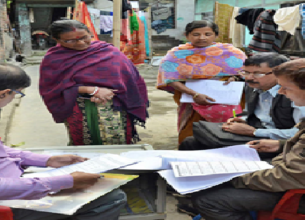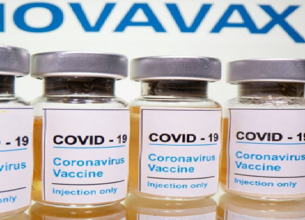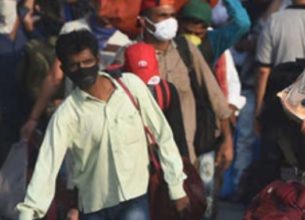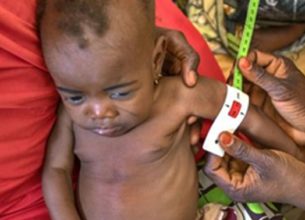WHO RAISES CONCERN OVER USE OF BCG VACCINE
02, May 2020

Prelims level : Medicine and Pharmaceuticals
Mains level : GS-II Issues relating to development and management of Social Sector or Services relating to Health, Education, Human Resources.
Why in News?
- World Health Organization (WHO) Director-General Tedros A Ghebreyesus and others highlight a few critical issues over the use of BCG vaccine for COVID-19.
About BCG:
- Bacillus Calmette–Guerin (BCG) vaccine is a vaccine primarily used against tuberculosis (TB). In countries where TB or leprosy is common, one dose is recommended in healthy babies as close to the time of birth as possible.
- In areas where tuberculosis is not common, only children at high risk are typically immunized, while suspected cases of tuberculosis are individually tested for and treated.
BCG and COVID-19:
- The Middle and High-Income Countries
- Countries that have universal BCG policy had 0.78 deaths per million people.
- The countries that never had a universal BCG policy had a larger mortality rate, with 16.39 deaths per million people, a significant variation.
- Low and Middle-Income Countries, even if they had universal immunisation policies, were excluded from the analysis because they were also likely to have low testing rates for COVID-19 infection and therefore fewer reported deaths.
- India having a universal BCG policy in place and relatively fewer deaths as a proportion of confirmed coronavirus infections, wasn’t included in the analysis.
- The BCG vaccine is known to confer a strong immune response and a significant degree of protection against leprosy and non-invasive bladder cancers.
- Those countries where the elderly was likely to have had a BCG shot in their childhood were likely to be better protected against coronavirus because COVID-19 was particularly lethal to the Elderly.
BCG in Cases of Different Countries:
- Japan (which has a BCG policy since 1947) had one of the early cases of COVID-19 but it has maintained a low mortality rate despite not implementing the most strict forms of social isolation.
- Japan had 1,655 cases and 65 deaths as of March 29.
- Iran, which has seen at least 3,000 deaths, began implementing its BCG vaccination policy only in 1984 and therefore anyone over 36 was vulnerable.
- Spain, France, the United States, Italy and the Netherlands:
- These countries don’t have universal BCG policies and have seen many deaths from COVID-19.
- Many of these countries don’t have a universal programme because BCG has been shown to not be always protective against tuberculosis in adults as well as an increased risk of mycobacterium (bacteria) species.
- Italy, where the COVID-19 mortality is very high, never implemented universal BCG vaccination.
What are the Concerns of WHO?
- The authors cite five reasons countries should wait for the results of the BCG vaccine Randomised controlled trials.
- According to them, the association of fewer COVID-19 cases in countries that have a universal BCG Vaccination Programme is based on population rather than individual data.
- Second, the beneficial effects of the BCG vaccine given at birth are “unlikely” to reduce the severity of COVID-19 decades later. “One reason for this is that the beneficial off-target effects of the BCG vaccine might be altered by subsequent administration of a different vaccine.
- Third, there is a possibility, even if remote, that the BCG vaccine ramps up the immune system leading to exacerbation of COVID-19 in a small population of patients with a severe disease.It is already known that the virus induces cytokine storm in some patients, leading to further complications — and even death.
- Fourth, if not effective against the novel coronavirus, BCG vaccination is likely to give a false sense of security to people, especially during the pandemic.
- And finally, using the vaccine without evidence of its benefits could further Jeopardise vaccine supply, which is already short, to protect children against disseminated TB in high-risk Countries.















